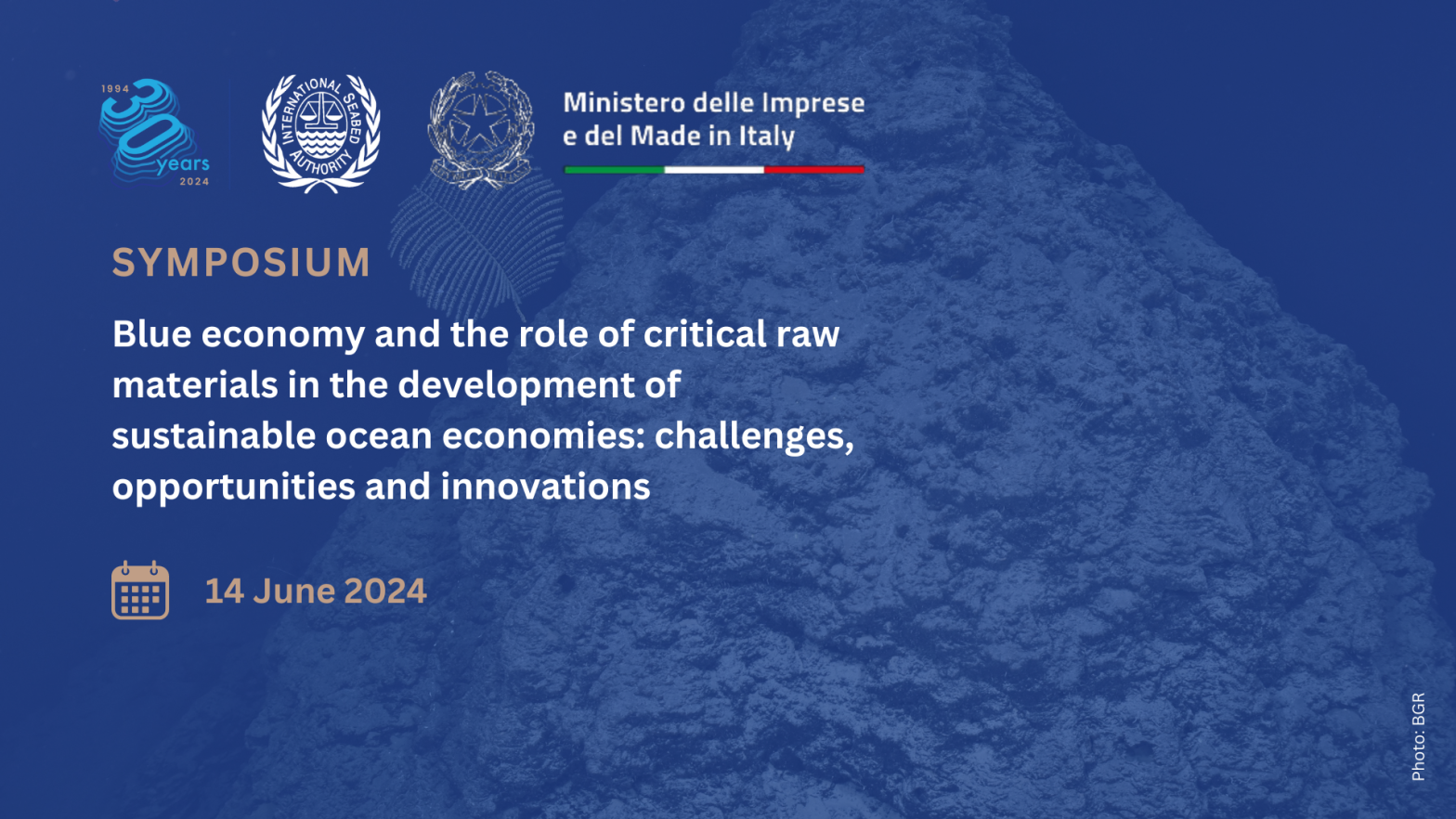Rome, Italy – On 14 June 2024, the Italian Ministry of Enterprises and Made in Italy (MIMIT) and the International Seabed Authority (ISA) organized a symposium entitled Blue economy and the role of critical raw materials in the development of sustainable ocean economies: challenges, opportunities and innovation.
The event, which took place in Rome at the seat of the MIMIT, brought together high-level representatives from governments, national and international institutional actors, members of the diplomatic corps in Rome, researchers, industry representatives and other stakeholders to discuss the relevance of deep-seabed mineral resources for a carbon-neutral future and sustainable blue economy.
The symposium featured more than 24 speakers including senior government representatives, industry leaders, academics, international law experts, and scientists from Europe, Asia Pacific, the Caribbean and Africa.
In light of the peculiar importance that the Ministerial Declaration of the G7 Industry, Technology and Digital under the Italian presidency attached to joining forces to promote collaboration among stakeholders across value chains, the symposium looked into technological solutions that would allow to sustainably use the mineral resources of the Area while minimizing environmental harms.
Five panel discussions took place during the symposium on the role of the blue economy and critical raw materials in the Italian industrial policy strategy: the role of critical deep-seabed mineral resources for a carbon-neutral future and a sustainable blue economy, the fostering of alliances and partnerships in support of a global deep-sea research agenda for the sustainable blue economy, the deep-sea critical raw materials and the protection of the environment and the technical and technological solutions for the exploitation of deep-seabed resources.
The Secretary-General of ISA welcomed the engagement of Italian industry and governmental agencies in the discussions on the potential role of deep-sea minerals in a sustainable blue economy. “The main purpose of the Mining Code under development by ISA is to ensure the effective protection of the marine environment by a strict application of a precautionary approach to the development of deep-sea resources. Technology and innovation, alongside scientific research, will play an important role in minimizing any potential for adverse environmental impact. This requires widespread international cooperation, collaboration and greater investment in marine science and technology.”, he said.
In the margins of the symposium, the Secretary-General also met with Mr. Federico Eichberg, Chief of Staff of MIMIT, who highlighted the importance of critical minerals for achieving the objectives of green and digital transitions: “Only international cooperation among States,” he stressed, “can help reach these global goals. Italy will continue supporting ISA in the negotiations of the Mining Code.” He also stressed that “deep-sea mining should be authorized in the framework of a strong and adequate regulation, which prevents harmful effects to the marine environment.” Mr. Eichberg welcomed the growing interest and future engagement of Italian enterprises in activities in the Area, as well as the Italian contribution to the advancement of marine scientific research and the capacity development activities targeting African countries, in line with the recently adopted Mattei Plan for Africa.
The Secretary-General concluded, “I look forward to further engagement by Italy in the work of ISA, particularly in relation to our work under the Action Plan for Marine Scientific research in support of the UN Decade of Ocean Science for Sustainable Development and the Capacity Development Strategy.”
About ISA
The International Seabed Authority (ISA) is an autonomous intergovernmental organization mandated by the United Nations Convention on the Law of the Sea to manage the mineral resources of the seabed beyond national jurisdiction for the shared benefit of humankind. ISA is committed to the principle that all economic activities in the deep seabed, including deep-seabed mining, must be regulated and responsibly managed using the best available scientific evidence for the benefit of all nations of the world. ISA works to ensure that the voices of all States, including developing States and other stakeholders, are effectively heard in discussions around the sustainable development of the deep seabed.
For media enquiries, please contact:
Mr. Philip Janikowski, Communications Specialist, ISA, pjanikowski@isa.org.jm


